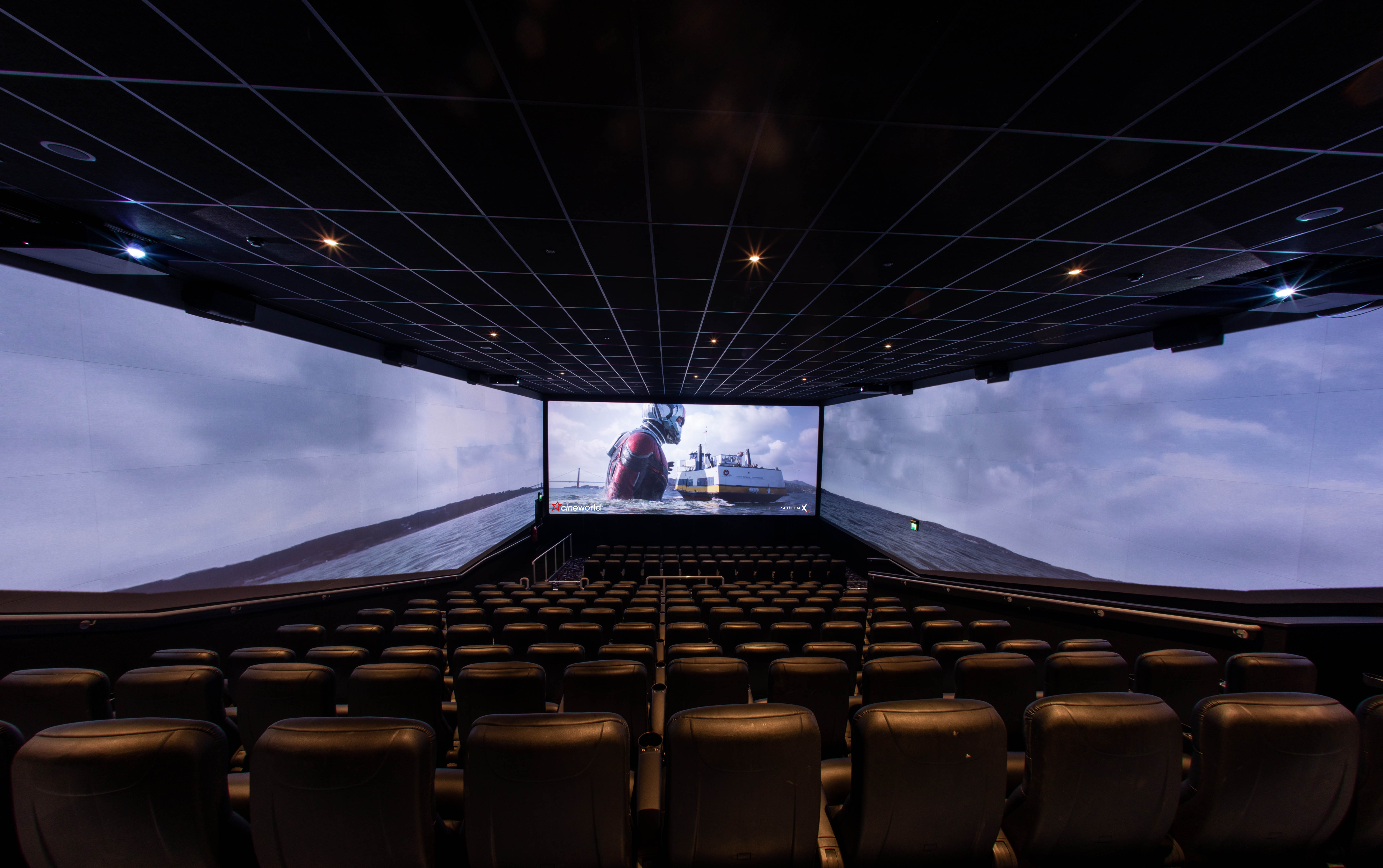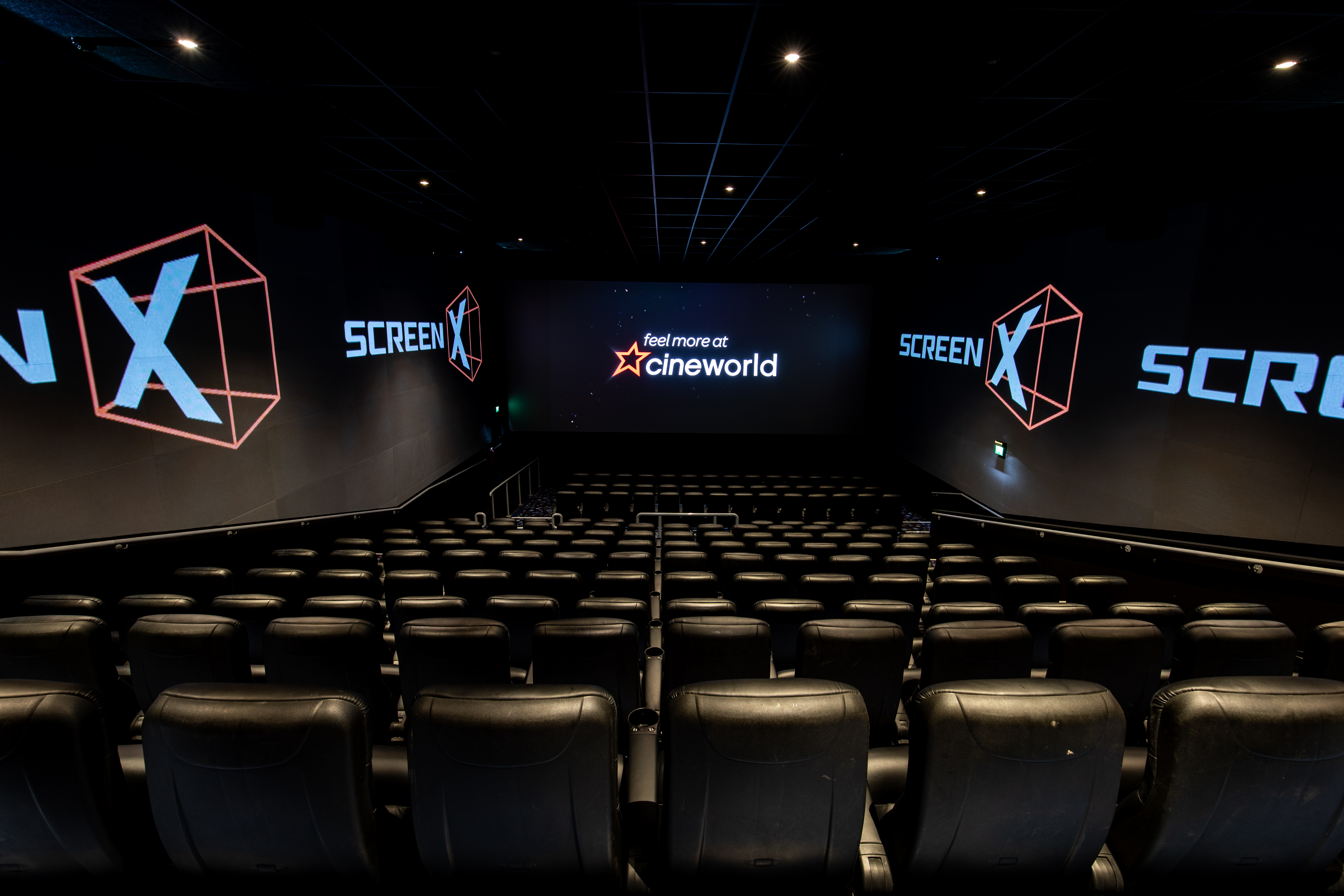Cineworld opens UK’s first three-wall movie screen
Surround sound for your eyes

What’s next for movies? With films increasingly viewed and consumed in the home, and even high-profile releases like Annihilation and The Cloverfield Paradox skipping movie theatres entirely, it’s harder than ever to entice audiences into coughing up for a big-screen experience.
ScreenX hopes to change that. While IMAX and 3D production companies look to enhance the quality of the picture itself, Screen X is building dedicated three-wall cinema screens to expand your field of view and make blockbuster movies a more immersive experience than ever.
Founded in South Korea in 2015, ScreenX is already running at 139 locations worldwide, but this marks the first time it’s come to the UK. Cinema chain Cineworld has an exclusive deal to bring ScreenX’s technology to 100 locations across the country, while also fitting out a number of theatres in the US.
But with the likes of 3D struggling to bring in audiences, can ScreenX find a place in the market?
As far as the eye can see

The aim of the 270-degree viewing experience is to better immerse you in the world of the film. While the main screen shows the standard feature film you would get in any other cinema, the side screens will show separately-shot footage that expands the field of view. None of it will be crucial to the content, but fills your periphery with surrounding information.
Unsurprisingly, the cinema needs to be specifically kitted out with the additional screens, which extend out of the main screen and taper off as it reaches the back wall.
Only certain scenes in a movie will get the expanded treatment, however. Much like shooting in IMAX, ScreenX requires a dedicated rig to get the necessary footage, which will only be possible – or worth doing – in certain environments that allow for that wide field of view.
Get daily insight, inspiration and deals in your inbox
Sign up for breaking news, reviews, opinion, top tech deals, and more.
This does mean the ‘wings’ of the screen will turn on and off throughout the movie, which could break the immersion it hopes to build. Some may also find the added ‘noise’ in their view more of a distraction than its worth.
It's worth remembering that you won't get the full experience if you're sat right at the front either, which likely won't please audience members who paid for the premium ticket.
When we sat down to watch a screening of the shark-thriller The Meg, however, being able to plunge to the depths of the ocean on multiple sides showed the potential the technology could offer.
Starting slow

The new technology is slowly building up a repertoire of ScreenX compatible movies. Screenings of both The Meg and Ant Man and The Wasp are now available to book at Cineworld Greenwich O2, with horror movie The Nun set to follow shortly.
We could imagine the immersion really bringing a new dimension to horror, though whether you want to be terrified from multiple angles is up to you.
ScreenX has already been installed at the newly-opened Cineworld Speke in Liverpool, with Cineworld Leeds White Rose set to get kitted out in September.
What does it cost, though?
Watching a film in ScreenX will add a £3 surcharge to the base price of any Cineworld ticket, which is a nudge higher than the 3D surcharge but a couple of pounds below what you’d pay for an IMAX screening.
With IMAX and 3D already coming together in the same film, though, we wonder whether ScreenX may find its success in partnering up with the other production technologies already on offer.
Cineworld was the first UK movie chain to utilize 4DX screening back in 2015, tapping the market for multi-sensory cinema with rumbling seats, wind machines, rain, and dedicated scents released into the audience. Like 4DX, ScreenX won’t be for everyone, but for those wanting to shake up their moviegoing experience, it might just be the difference between going to see the movie at all.
Henry is a freelance technology journalist, and former News & Features Editor for TechRadar, where he specialized in home entertainment gadgets such as TVs, projectors, soundbars, and smart speakers. Other bylines include Edge, T3, iMore, GamesRadar, NBC News, Healthline, and The Times.
